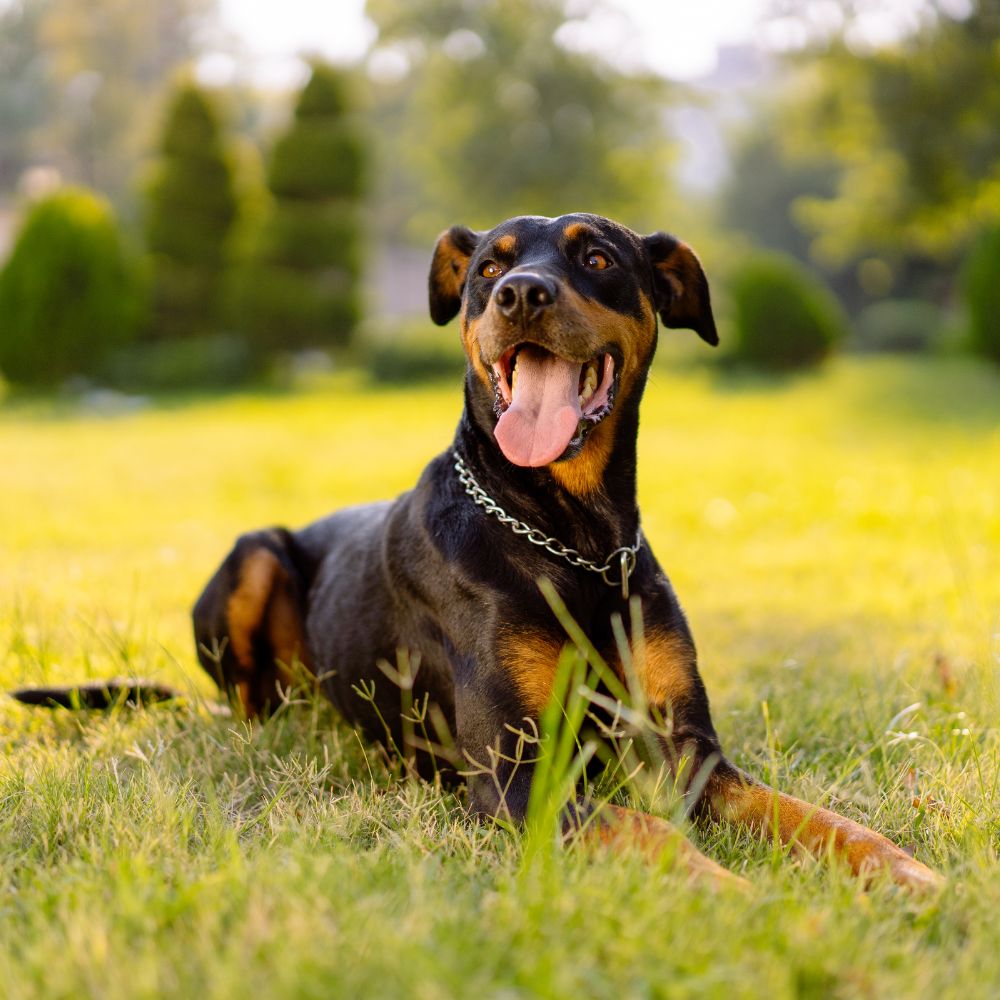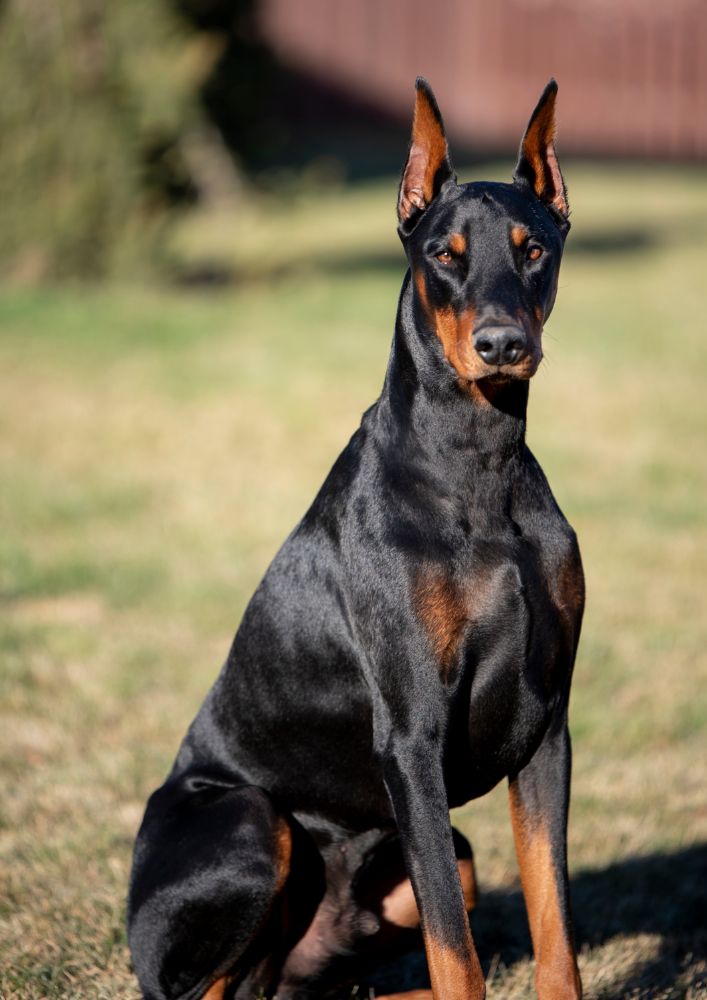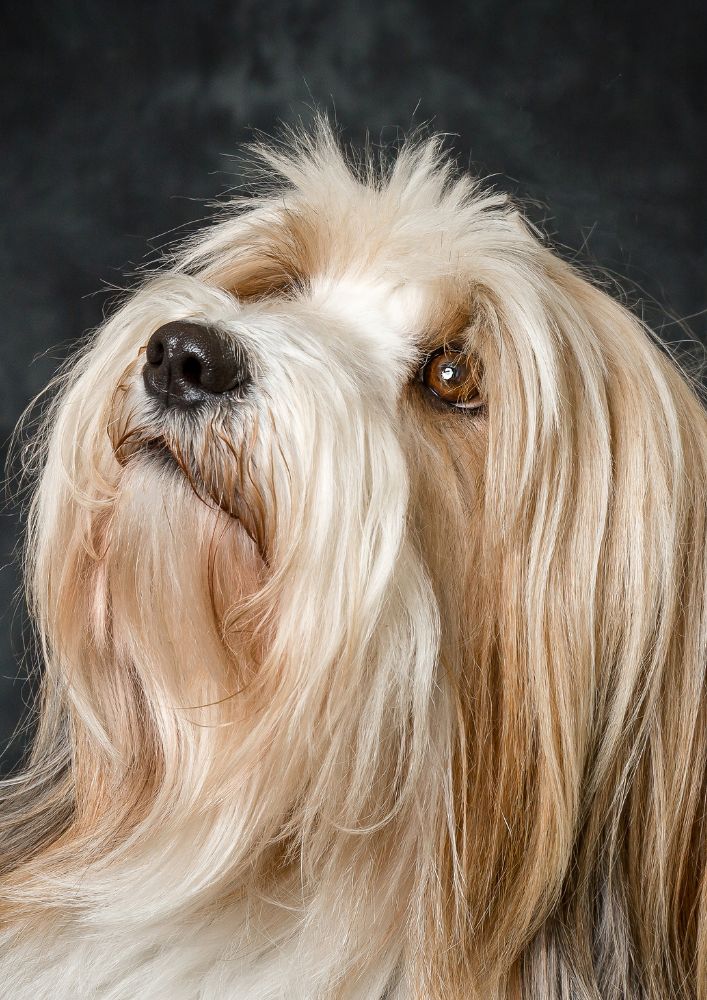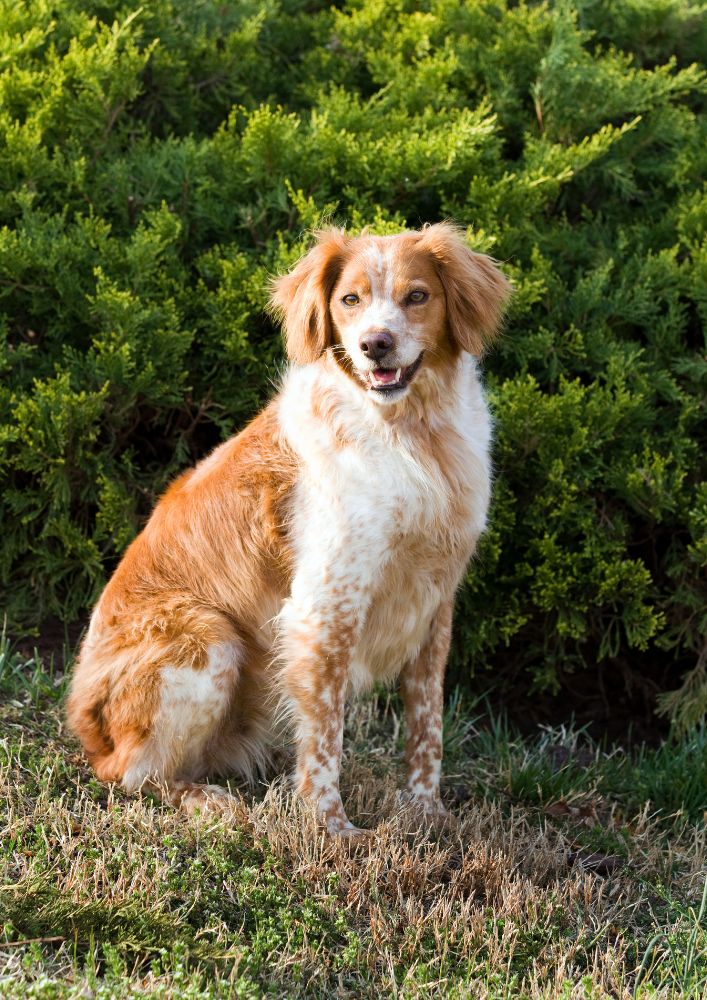Everything You Need to Know About the Doberman Pinscher

Doberman Pinschers are one of the most popular and respected dog breeds worldwide, known for their loyalty, intelligence, and protective nature. They make excellent family pets and are also highly effective working dogs, excelling in roles such as security and police work.
A Brief History
Doberman Pinschers were originally bred in Germany in the late 19th century by Karl Friedrich Louis Dobermann, a tax collector who wanted a loyal and protective dog to accompany him on his rounds. The breed was developed by crossing several breeds including the Rottweiler, Greyhound, and German Pinscher to create a dog with strength, speed, and tenacity.
Appearance and Size
Doberman Pinschers have a sleek, muscular build with a short, smooth coat that comes in colors such as black, red, blue, and fawn, often with rust-colored markings. They are large dogs, typically weighing between 60 to 100 pounds (27 to 45 kg). Males are usually 26 to 28 inches (66 to 71 cm) tall at the shoulder, while females are slightly smaller at 24 to 26 inches (61 to 66 cm).
Loyal and Protective
Doberman Pinschers are well-known for their loyalty and protective nature. They are affectionate with family and alert with strangers, making them excellent guard dogs. Their loyalty extends to their family members, and they are often very protective of their home and loved ones.
Energetic and Intelligent
These dogs are energetic and intelligent, requiring plenty of physical and mental stimulation. They thrive on activities and enjoy being part of the family’s daily routine. Whether it’s running, playing fetch, or participating in dog sports like obedience and agility, Doberman Pinschers are always ready for a challenge.
Ideal Living Conditions
Doberman Pinschers do well in a house with a yard where they can run and play. They are adaptable to different living situations as long as they get sufficient exercise. While they can live in an apartment, it’s crucial that they get plenty of outdoor exercise to burn off their energy.
Compatibility with Family and Pets
Doberman Pinschers are excellent with children and can get along well with other pets if properly socialized from a young age. Their protective nature makes them a great addition to any family. They are patient and gentle with young children and can be very affectionate with their human siblings.
Grooming Needs
Regular grooming is essential to manage their shedding and keep their coat healthy. Brush them weekly to remove loose hair and keep their coat shiny. Bathing should be done as needed, but not too often to avoid stripping the coat of its natural oils. Regular ear cleaning, teeth brushing, and nail trimming are also important aspects of grooming for a Doberman Pinscher.
Exercise Requirements
Doberman Pinschers require at least 1-2 hours of exercise daily. They enjoy walks, runs, and playing fetch. Their high energy levels need to be managed with regular physical activity. Lack of exercise can lead to behavioral issues such as chewing and excessive barking. Incorporating mental stimulation through training and puzzle toys can also help keep them happy and well-behaved.
Training Tips
Doberman Pinschers are highly trainable due to their intelligence and eagerness to please. Positive reinforcement methods work best with this breed. They excel in obedience training and can learn a wide variety of commands and tricks. Consistent training from a young age helps establish good behavior and manners.
Social Behavior
Proper socialization from a young age ensures that Doberman Pinschers grow up to be well-mannered and friendly dogs. Exposure to various people, places, and experiences is beneficial. Puppy socialization classes, regular visits to dog-friendly places, and playdates with other dogs can help them develop into well-adjusted adults.
Common Health Issues
Like all breeds, Doberman Pinschers are prone to certain health issues such as hip dysplasia, dilated cardiomyopathy, and von Willebrand’s disease. Regular vet check-ups and a healthy diet can mitigate some of these risks. Additionally, Dobermans can be prone to certain skin conditions and thyroid issues. Responsible breeders screen for these health issues to produce healthier puppies.
Lifespan and Care
Doberman Pinschers typically live 10-12 years. Providing them with proper care, nutrition, and regular veterinary visits can help ensure a long, healthy life. A balanced diet that meets their nutritional needs, combined with regular exercise and mental stimulation, contributes to their overall well-being.
Doberman Pinschers in Work and Service
Doberman Pinschers are not just beloved family pets; they also excel in various working roles. They are often used as police and military dogs due to their loyalty, intelligence, and strength. Their protective and alert nature makes them ideal for security work as well. Additionally, they can serve as therapy and assistance dogs, providing support and comfort to those in need.
Conclusion
Doberman Pinschers are loyal, intelligent, and make excellent companions for families and individuals alike. Their protective nature and trainability make them a beloved breed around the world. Whether you are looking for a family pet, a working dog, or a loyal companion, the Doberman Pinscher can fill that role with grace and dedication.
Considering adopting a Doberman Pinscher? Check out local shelters or breed-specific rescue groups to find your new furry friend.
Gallery



Quick Facts
- Size: Large
- Lifespan: 10-12 years
- Group: Working





